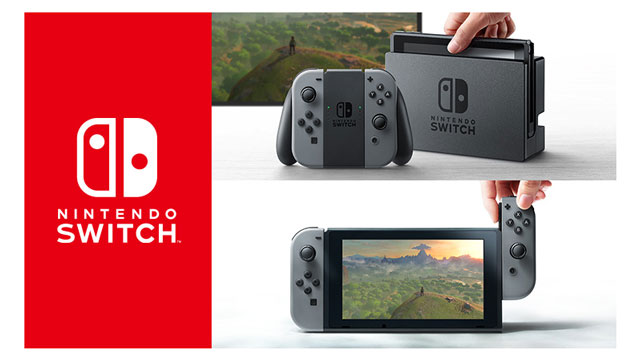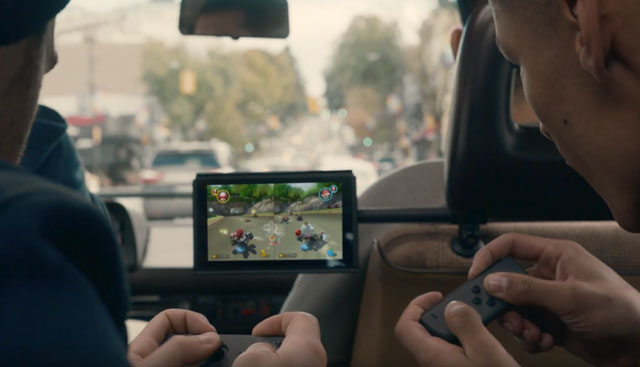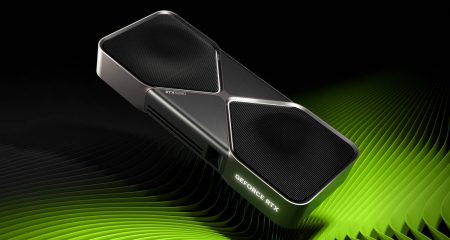
Nintendo’s new Switch gaming console is off to an underwhelming start.
The new machine, a tablet-sized device with wireless controllers that can be used anywhere but also connects to TVs, will go on sale on 3 March at a price of US$300, with a brand-new Zelda game as its launch title.
None of that, however, was enough to convince investors that it will be a big moneymaker for the Kyoto-based company, whose shares fell 5,8% to ¥23 750 after Nintendo executives held a presentation in Tokyo on Friday.
Nintendo is counting on the Switch to end years of pain at its console division, which released a successor to the popular Wii in 2012 that flopped.
After shunning the smartphone market for years, its long-awaited foray into mobile gaming got off to a rough start, with last month’s disappointing debut of Super Mario Run.
With Switch, there isn’t any single distinguishing feature — like the Wii’s motion controllers when that machine debuted a decade ago — likely to lure buyers for the new console and its games. That’s fuelling concerns Nintendo may be losing its ability to deliver hit entertainment products.
“The pricing and game titles were as expected; the stock was bought up on hopes and sold on the fact,” said Hideki Yasuda, an analyst at Ace Research Institute. “The first two weeks of sales will be critical for Nintendo, and they will have to sell the 2m units they forecast for the quarter. The Switch’s success will be determined at the start.”
Nintendo also introduced one new feature for the Switch: an online gaming network. While details were scarce, the company said it would let people play with friends and chat online.
The service will initially be free from March, and become a paid service later in the year. While the connectivity is new for Nintendo, the Xbox One or PlayStation 4 console have had the feature for years.

“Charging for its online services is hardly surprising, but I’ll be curious to see if Nintendo can justify it,” said Jim Sterling, founder of the influential gaming blog The Jimquisition.
For new games, Nintendo also introduced a new Mario game called Super Mario Odyssey as well as Splatoon 2, a successor to the popular paint-throwing game.
Another new game called Arms was introduced, designed to work with the Switch’s new Joy-Con motion-sensing controllers. While the controllers pack more features and sensors, allowing for new ways to play games, they are essentially upgrades of Wii’s motion controllers.
The price surpassed most analyst estimates. Mizuho Financial Group’s Takeshi Koyama last week wrote he expects the Switch to go for around $249 to $279. Macquarie Securities analysts analysts David Gibson and Aya Haruyama wrote this week they expected a price of around $250. At $300, the Switch would cost more than Sony’s $260 PlayStation 4 and Microsoft’s $240 Xbox One, based on current US retail pricing.
Nintendo said the Switch’s battery will provide 2,5 to 6 hours of game play. Nintendo’s promise of delivering high-end graphics in a portable package also rests largely on its ability to maximise battery life. Last year’s Galaxy Note7 debacle was a reminder of the challenges even experienced hardware manufacturers such as Samsung Electronics face in pushing battery efficiency.
“Our biggest concern is battery life, which we think will remain an issue,” Macquarie Securities said.
As a portable gadget, the device sports a screen, attachable joysticks and battery. Nintendo is betting that the ability to play the same titles indoors and outdoors will appeal to gamers who now play one set of games at home and a different collection on their smartphones when out and about.
Still, that means the Switch will have to compete with smartphones, which most people already own and use. It’s unclear if consumers will want to carry another bulky device when smartphones already fill their spare moments with millions of games, apps and videos.
“There is a possibility that this proposed new game playing experience will not immediately be understood,” Takeshi Koyama, an analyst at Mizuho Financial Group, wrote in a report last week.
Since its Wii peak about a decade ago, Nintendo shares have slumped by about two-thirds, losing more than $50bn in market value. In October, Kimishima told Bloomberg the Switch will play a central role in restoring operating profits to a level of around ¥100bn/year. — (c) 2017 Bloomberg LP




